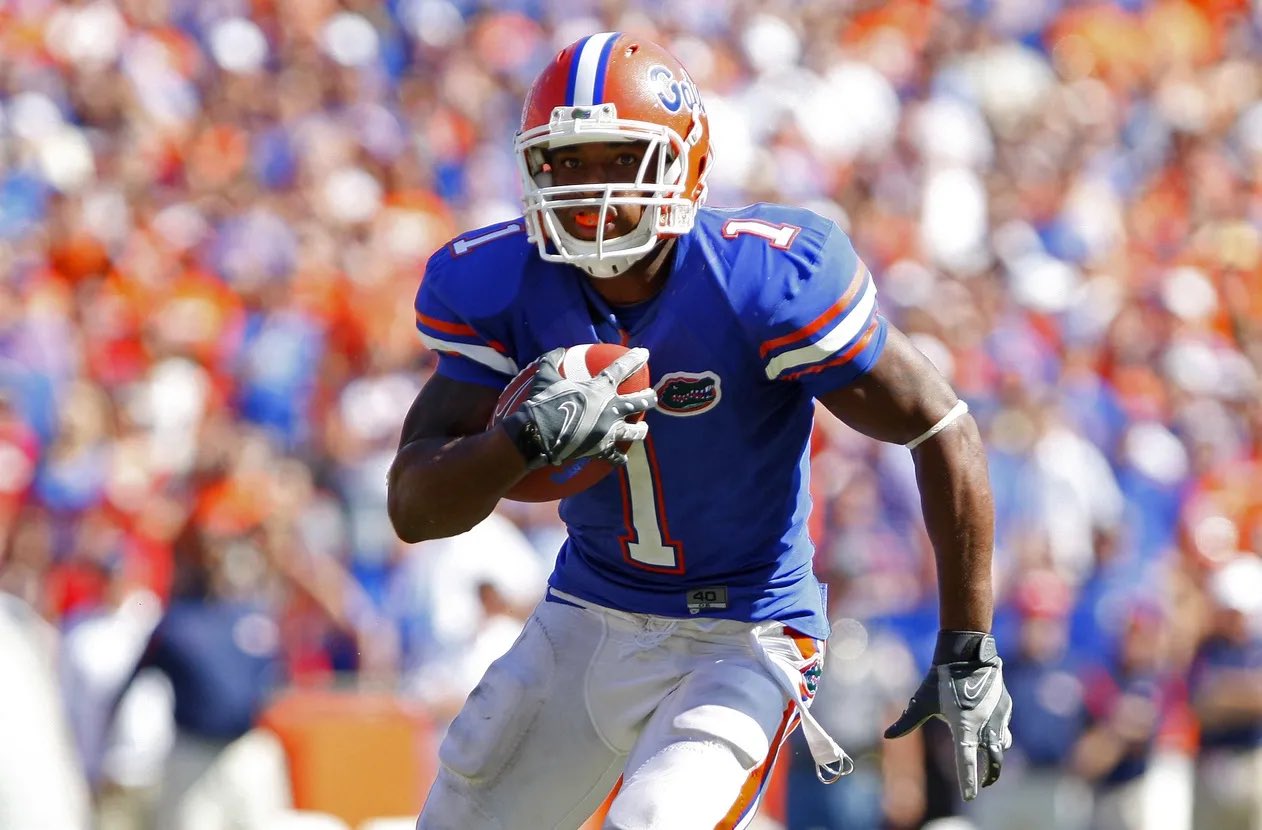
Percy Harvin, one of the most electrifying players in college football history, has officially been named to the 2026 College Football Hall of Fame ballot, an honor that puts him one step closer to eternal recognition in the sport. Known for his rare blend of speed, versatility, and game-breaking ability, Harvin left an indelible mark on the college football landscape during his career at the University of Florida from 2006 to 2008.
During his time under head coach Urban Meyer, Harvin was the centerpiece of a dynamic Florida offense that helped redefine the modern spread attack in college football. His ability to line up as a receiver, running back, or return specialist made him nearly impossible to game-plan for, and his explosive playmaking helped lead the Gators to two national championships in three seasons.
Harvin was not only a highlight machine but also a model of consistency when healthy. Over his three-year college career, he racked up more than 3,700 all-purpose yards and 32 total touchdowns. His impact went far beyond statistics, though. He was the engine behind countless big plays, many of which came in critical moments on the biggest stages. In the 2009 BCS National Championship Game against Oklahoma, Harvin played through an ankle injury to rush for 122 yards and a touchdown, helping the Gators secure a 24-14 victory and a national title.
A consensus All-American in 2008 and a two-time first-team All-SEC selection, Harvin was known as much for his explosiveness as for his football IQ and fearlessness. Few players have ever managed to impact a game in so many different ways—offensively, on special teams, and even as a decoy whose mere presence forced defenses to adjust.
Harvin’s collegiate legacy is deeply intertwined with the success of the Gators during one of the program’s most dominant eras. Alongside teammates like Tim Tebow, Brandon Spikes, and Aaron Hernandez, Harvin helped turn Florida into a powerhouse that defined the SEC during the late 2000s. His performances in rivalry games—such as against Florida State and Georgia—only added to






